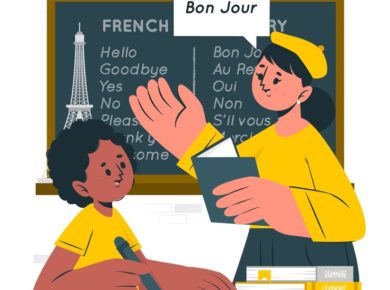Students crave authority. Children want a teacher who sets boundaries, has high standards and displays self-confidence. In contrast, they dislike a teacher who is disorganized and always late with assignments. A child will show signs of stress if the teacher is indecisive or makes mistakes frequently. Aggressive students usually need firm guidance in order to manage their behavior problems in school, and the classroom needs to be an environment that is not threatening or frightening to these types of students.

The best way to be a successful teacher is to be a professional. You can’t be an expert in every subject or even in just one subject because you are always working with individual students who have specific needs. You also must pay attention to the laws and principles that are important and apply them fairly in all situations.
The way behavior is addressed on what kind of classroom it is and who’s responsible for the discipline. If you have five students and you are teaching your class alone, it is up to you how you handle being late for class.
6 Ways Teacher’s Personality and Behavior Affect The Student
A teacher’s personality and behavior have a huge impact on a student’s attitudes and performance. If you seek success as an educator, it is important that you connect with students and build relationships that will benefit the entire class. Here are six ways in which your students’ attitudes and performance are affected by your personality and behavior:
- 1. Confidence is catching
Students do not need to see a teacher who lacks certain knowledge or is disorganized; neither do they respond well to teachers who make mistakes or are too easygoing. Students thrive when their teacher has high standards, believes in them, and displays self-confidence. A confident teacher conveys a feeling of success to the class as a whole.
- 2. Drama-free zone
Students do not like teachers who engage in drama. They respond better to teachers who are grounded and are able to handle conflict constructively. A drama-free zone does not mean that you cannot have disagreements with your students; however, you should maintain an appropriate level of detachment and avoid an attitude that is confrontational.
- 3. Happiness is your goal
Students want their teachers to be happy, and they will react positively when they see an apparent sincerity in their teacher’s behavior. The overall mood of the classroom affects student behavior as well as classroom interactions. Students will not react positively to a teacher who displays a negative attitude or is always grumpy.
- 4. Where students play is also a factor
Whether you’re teaching in a primary classroom or high school, students will respond far better if they can play in an environment where they feel safe. When the classroom is too large and chaotic, students have trouble concentrating on their work and are not happy. They will not like it when the teacher seems too bossy or is always grumpy. As an educator, you must build a classroom environment that allows students to develop with minimal distractions and encourages them to be comfortable coming to class each day.
- 5. Reward for good behavior makes a difference
Classroom discipline should be based on whether the student’s behavior was good rather than whether he caused problems. Students want to be rewarded for good behavior and are more inclined to respond positively if they receive praise and recognition for their efforts. Students will also better understand the consequences of their actions when they are identified as being good rather than bad. The best way to teach students is to reward them for good behavior and provide them with positive feedback that demonstrates your respect.
Other tips that help you manage your classroom environment:
- Tell students how great they are when they do something well so you can motivate them to work even harder.
- When a student’s work is substandard, have him/her try again at another time or in another group.
- When students argue during class, keep the discussion under control and tell them that you will take their input into consideration.
- Give students time to settle down before they start to talk.
- Ask questions or make comments that lead to a wide range of topics.
The Final Word
Teachers guide their students and set the standards for an effective classroom. If a teacher is able to maintain high standards, is open to suggestions, and treats students equally, then it is likely that the classroom will be successful. Teachers who choose to adopt a positive attitude, as well as an appropriate level of detachment with their students, will see that they become more productive and improve the overall performance of all their students. If you are passionate about teaching and want to take your coaching career to the next level then Classplus is here to help you. Get your own coaching app with amazing features just made for you. Connect now to know more.




